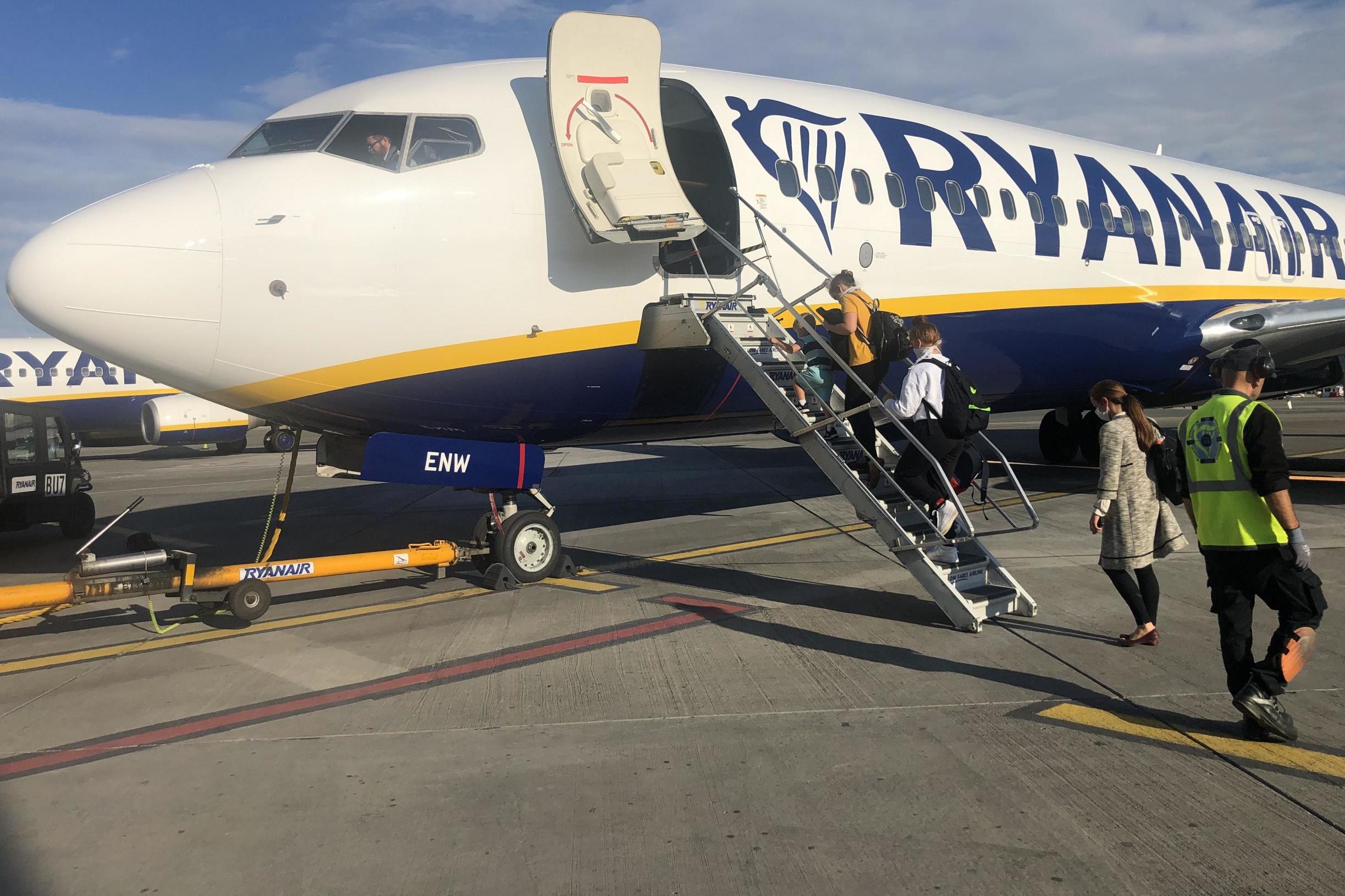Passport? Ticket? Mask? The future of flying post-coronavirus
Plane Talk: Regardless of tests and thermometers, flying in the future can never be risk-free

These difficult days, you have to take whatever meagre opportunities there might be for foreign travel.
On Monday, I wanted to experience as much “new normal” aviation as I could in the course of a long day. It began with a 7am departure from Gatwick to Glasgow on easyJet’s first flight for 11 weeks, and ended at 9pm in a bit of a muddle at Bristol airport.
In between I visited Edinburgh and Dublin airports – the latter being my first overseas adventure for three months.
To avoid spending 14 days in self-isolation, I could venture no further than the airport; Irish rules on quarantine allow exemption if you remain within the terminal.
But I was able to enjoy an actual cup of Barry’s finest tea in an actual cafe with other actual people – and none of us wearing masks.
You may feel it is the height of irresponsibility to fly right now – encountering many unknown passengers, airport staff and flight crew.
Yet it was genuinely comforting to experience something approaching normality, at least until the airport’s sole airside cafe closed at 5pm; the flight was some hours later.
On boarding the two-thirds empty Boeing 737, the Ryanair staff politely but firmly asked us all to put on masks. Being an airline passenger has always implied a certain amount of submission, and we duly complied.
How valuable face coverings are in reducing risk is hotly debated, but United Airlines is so insistent upon them that the giant US carrier is getting tough with passengers who refuse to wear one.
The carrier says it will “suspend travel privileges” of any passenger who refuses to wear a face covering on a United aircraft.
Across in Belgium, staff at Brussels airport adopted a different approach: taking every passenger’s temperature. Anyone who scores above 38C gets taken for a medical check. One traveller was turned away on Monday.
By Tuesday, I was hearing from Dr David Powell, medical adviser to the International Air Transport Association (IATA) about the benefits and drawbacks of Covid-19 testing in aviation.
Testing before departure, he said, made much more sense than simply testing on arrival. If passengers are to be checked at airports, said Dr Powell: “Testing must deliver results fast, be able to be conducted at scale, and operate to very high rates of accuracy.”
Speed? An hour, maximum.
Scale? Hundreds of tests per hour must be achievable, which necessitates samples of saliva rather than the intrusive and uncomfortable nasal and throat swabs currently used.
Accuracy? Extremely high, with false negative and false positive results below 1 per cent.
This elusive trinity is possibly years away. While scientists are working to meet what looks an implausible specification, many millions of us will be flying.
And the public address system at Dublin airport will continue warning passengers to “keep a distance of two metres” (adding helpfully “or just over six feet”) minutes before we crowd into an aluminium tube.
Airports empty as Coronavirus affects aviation industry
Show all 11Regardless of tests and thermometers, passengers flying in the future must tolerate a certain, small danger. Airlines, airports and travellers will need to accept that.
The wisest words I heard on Monday were from Gordon Dewar, chief executive of Edinburgh airport, who kindly waved me off to Dublin.
Scotland’s main hub has invested a huge amount of time, energy and money in biosecurity: providing as safe an environment as possible.
“Nothing’s risk-free,” said Mr Dewar, “but we’ll do everything we can to minimise that risk”.
Subscribe to Independent Premium to bookmark this article
Want to bookmark your favourite articles and stories to read or reference later? Start your Independent Premium subscription today.

Join our commenting forum
Join thought-provoking conversations, follow other Independent readers and see their replies